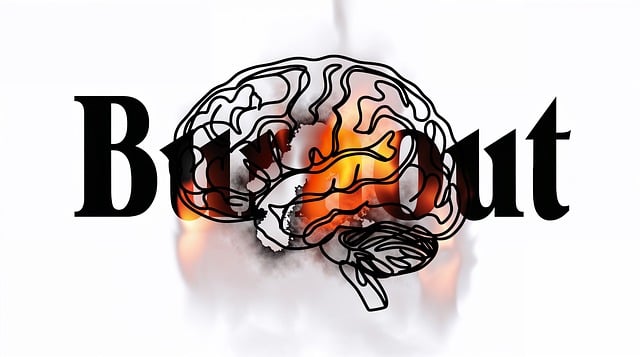Lafayette First Responders Therapy emphasizes the importance of coping skills training and social support networks for maintaining emotional well-being in high-stress professions. By integrating 'mind over matter' techniques, such as mindfulness meditation and stress management workshops, first responders can enhance resilience, manage trauma and anxiety, and achieve work-life balance. Peer connections play a vital role in fostering mental health awareness and building a supportive community, ensuring the long-term stability and effectiveness of these heroes.
In the high-stress world of emergency services, developing robust coping skills is an essential pillar of resilience for Lafayette first responders. This comprehensive guide, “Understanding Coping Skills: An Overview for Lafayette First Responders,” delves into the significance of effective coping strategies in mitigating the psychological toll of their work. We explore practical techniques to enhance mental well-being and highlight the critical role of peer support networks in fostering a culture of care within the community. Key topics include therapy options specifically tailored for first responders, offering vital tools for navigating the challenges unique to their noble profession.
- Understanding Coping Skills: An Overview for Lafayette First Responders
- The Significance of Coping Strategies in High-Stress Jobs
- Practical Techniques to Enhance Resilience and Mental Well-being
- Building a Supportive Network: Peer Connections for First Responders
Understanding Coping Skills: An Overview for Lafayette First Responders

For Lafayette First Responders, understanding coping skills is paramount to maintaining emotional well-being promotion techniques in their line of work. These individuals frequently encounter high-stress situations, making it crucial for them to employ effective strategies to manage and overcome the mental toll these events can cause. Coping skills are essentially the tools one uses to navigate through challenging circumstances, providing a shield against the adverse effects of trauma, stress, and anxiety. By mastering these techniques, Lafayette First Responders can enhance their resilience and better serve their communities.
The concept revolves around the idea of ‘mind over matter’ principles, emphasizing the power of mental fortitude. Social skills training plays a significant role here, enabling first responders to connect with peers and seek support when needed. Through counseling and therapy sessions tailored for them, these heroes can learn and refine coping mechanisms, ensuring they remain composed and effective in their responses. Such initiatives contribute to a healthier balance between their professional duties and personal lives, fostering a more robust and adaptable mindset.
The Significance of Coping Strategies in High-Stress Jobs

In the fast-paced and demanding environment of high-stress jobs, particularly for first responders like those at Lafayette First Responders Therapy, coping strategies are indispensable tools for maintaining mental well-being. The relentless nature of these roles often exposes individuals to traumatic events, leading to heightened stress levels and potential mental health challenges. Effective coping skills development is crucial in equipping these heroes with the means to navigate their emotional turmoil, prevent burnout, and foster resilience.
By adopting various coping strategies, first responders can enhance their Self-Care Practices and Self-Esteem Improvement. Techniques such as mindfulness meditation, deep breathing exercises, and cognitive reframing allow them to process emotions healthily, improve focus, and maintain perspective amidst adversity. Integrating these practices into their daily routines enables first responders to build mental fortitude, ensuring they remain effective and compassionate in the face of high-stress situations, ultimately contributing to their long-term career satisfaction and overall well-being.
Practical Techniques to Enhance Resilience and Mental Well-being

In today’s fast-paced world, fostering resilience is an essential aspect of maintaining mental well-being, especially for first responders who regularly face high-stress situations. Lafayette First Responders Therapy offers practical techniques to enhance coping skills and emotional healing processes. These include mindfulness practices that help individuals stay grounded in the present moment, reducing the impact of traumatic memories. Additionally, stress management workshops organized by the therapy center teach effective strategies to handle pressure, improving overall resilience.
Integrating these techniques into daily routines can significantly contribute to mental health awareness and prevention. By prioritizing self-care, first responders can better manage challenging scenarios, ensuring they are equipped with tools to navigate through stressful events without compromising their well-being.
Building a Supportive Network: Peer Connections for First Responders

For Lafayette First Responders, building a supportive network is vital for their well-being and effectiveness. Peer connections play a crucial role in fostering mental health awareness and resilience building. These first responders often face high-stress situations, and having a community of peers who understand their unique challenges can provide a safe space to share experiences and offer support. Such peer connections can significantly enhance their ability to cope with trauma and maintain mental fortitude.
Community outreach programs aimed at these professionals can facilitate the creation of such networks. Initiatives that promote open dialogue and encourage participation in support groups can foster a sense of belonging and camaraderie among Lafayette First Responders. Through these programs, they gain access to resources, learn coping strategies, and develop lasting bonds with peers who truly understand their role and its emotional demands. This collective support is essential for resilience building and ensuring the long-term mental health and stability of these heroes.
For Lafayette First Responders, cultivating strong coping skills is not just beneficial; it’s essential. By integrating practical techniques and building supportive peer networks, these individuals can enhance their resilience and mental well-being, effectively navigating the high-stress nature of their jobs. Remember that access to tailored therapy for first responders can significantly contribute to their overall health and readiness to serve.














